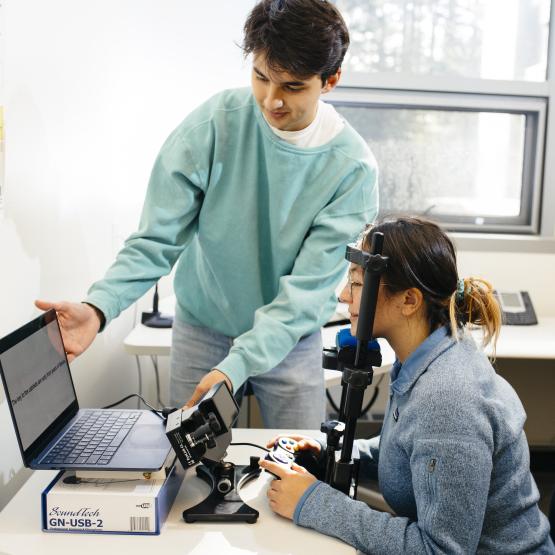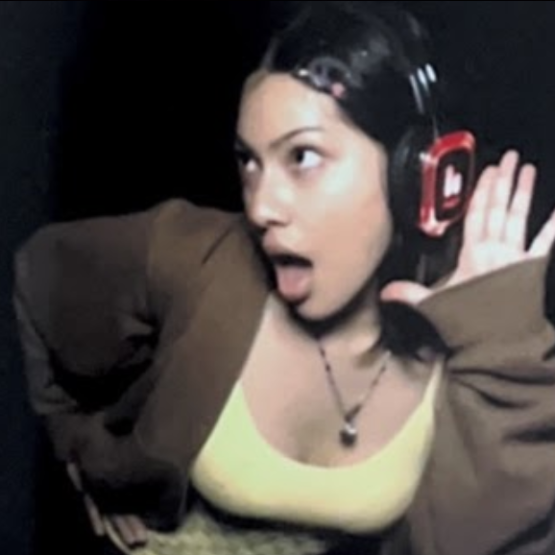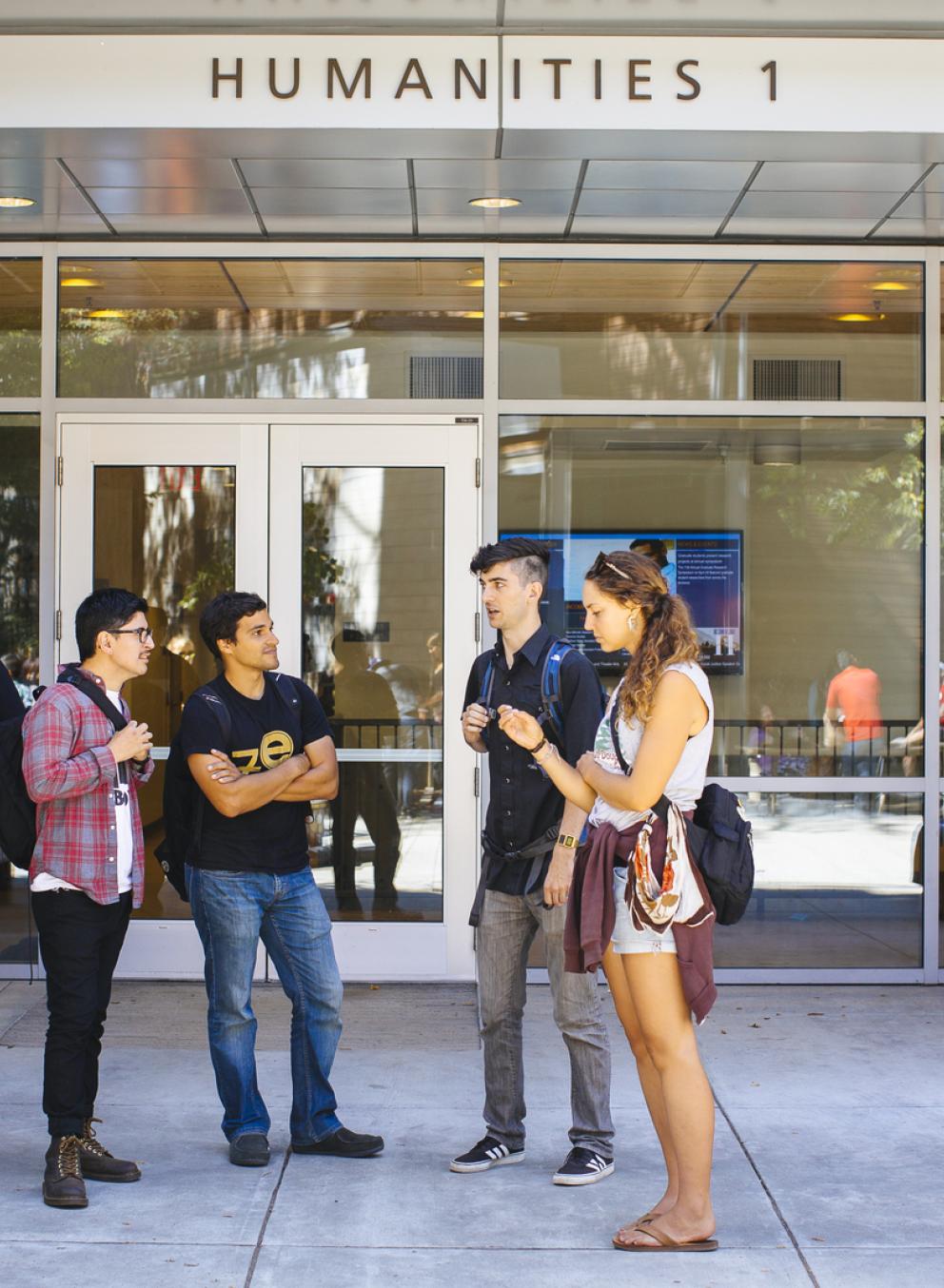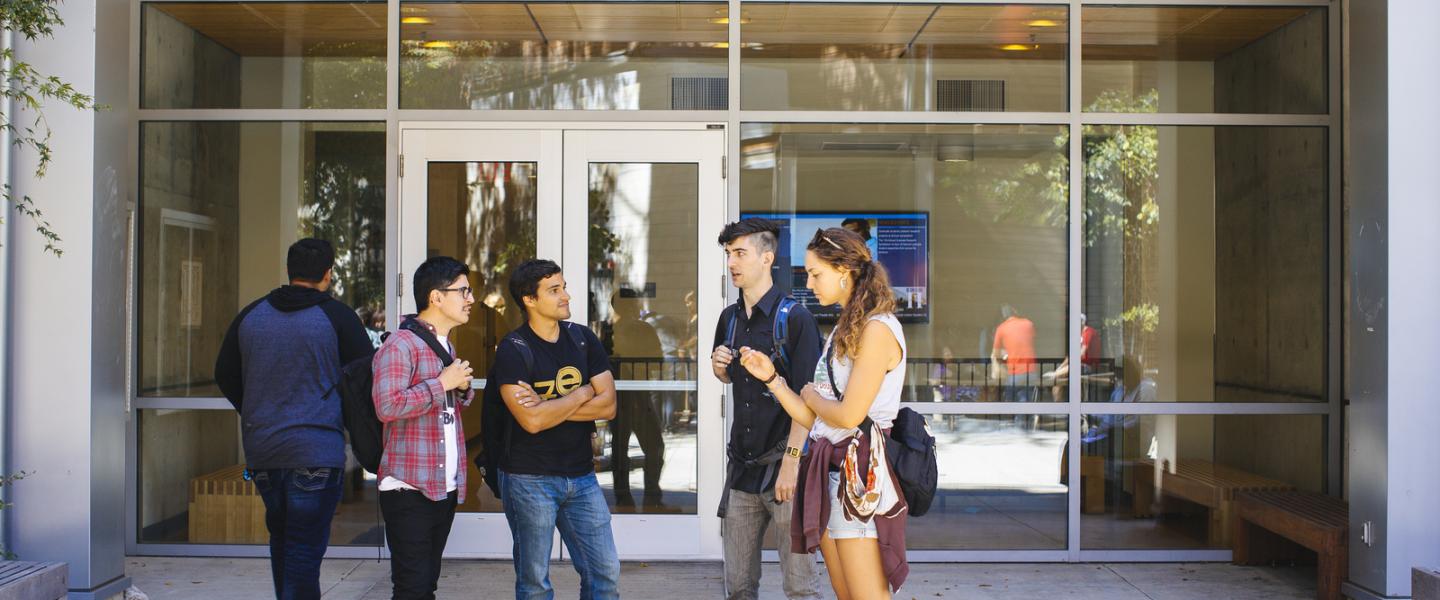Program Overview
The Linguistics major introduces students to the scientific study of language. Students explore central aspects of linguistic structure as they come to master the questions, methodologies, and perspectives of the field. Areas of study include:
- Phonology and phonetics, the sound systems of particular languages and the physical properties of language sounds
- Psycholinguistics, the cognitive mechanisms used in producing and perceiving language
- Syntax, the rules that combine words into larger units of phrases and sentences
- Semantics, the study of the meanings of linguistic units and how they are combined to form the meanings of sentences or conversations

- Linguistics
- Major
- Minor
- 3 year pathway
- 4+1 Bachelors & Masters
- Behavioral & Social Sciences
- Humanities
Student Story: Fatima
Through the Humanities EXCEL program, Fatima, a Linguistics major and an affiliate of John R. Lewis College, is working in community outreach for the Cabrillo Festival of Contemporary Music. “As a linguistics major, I’m interested in the role language plays in cultural identity and community empowerment,” says Fatima. “At Cabrillo Fest, I’m learning how to organize language to most effectively reach the people and make our programs/events accessible. This job also aligns with my values of uplifting communities through outreach and advocacy.” The Cabrillo Festival features living composers and celebrates diversity, new artists, innovative music, and all sorts of creative expression.

Career Outcomes
- Language engineering
- Information processing: computer science and computer technology, information sciences, library science
- Data analytics
- Speech technology: speech synthesis and speech recognition
- Advanced study in linguistics or in related fields
(such as experimental psychology or language or child development) - Education: educational research, bilingual education
- Teaching: English, English as a second language, other languages
- Speech-language pathology
- Law
- Translation and Interpretation
- Writing and editing
These are only samples of the field’s many possibilities.
What can I do with my Humanities degree? Find out here! Meet Humanities alumni, view videos, and explore career pathways.

